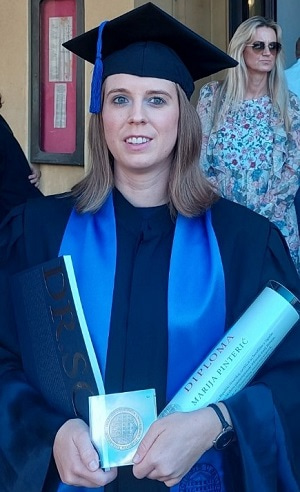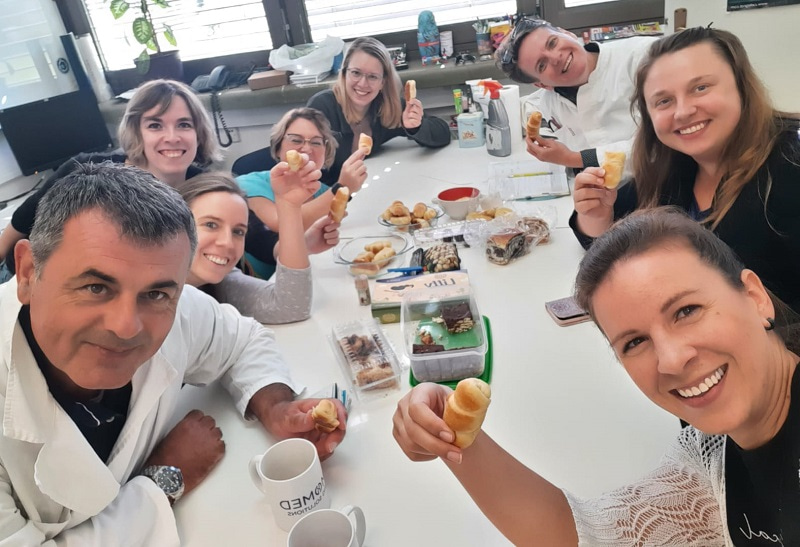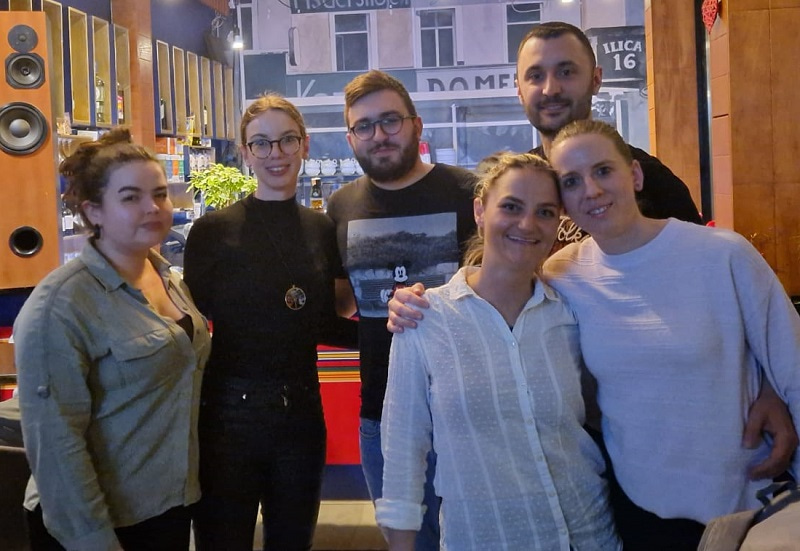Meet Marija Pinterić: FEBS Junior Section members' interview series

Our interviewee is Marija Pinterić, a postdoctoral fellow from the Ruđer Bošković Institute, Croatia. Marija is a member of the HDBMB Junior Section, the junior section of the Croatian Society for Biochemistry and Molecular Biology (HDBMB), a FEBS Constituent Society.

What motivated you to pursue a career in science? Why did you choose this field?
I decided to become a scientist because I like to discover new things and enjoy solving tricky problems. Furthermore, I like mental challenges and learning new things all the time and I get very excited when I come up with new cool ideas. I am currently working in the field of molecular medicine, which is great because it combines basic science with applied science. In this area of research, there is collaboration within various scientific disciplines and medical institutions.
Briefly introduce your research topic. What is the purpose of your research?
My research topic is focused on elucidating the role of sex in relation to the body's resistance to acute oxidative stress, with emphasis on metabolic processes in mitochondria and disorders of glucose and fat metabolism in various model organisms. I hope that my research will add to general knowledge, medical advancements and solving global health challenges.
What excites you most about your work or research?
What excites me most about working in science is the thrill of new discoveries, the intellectual challenges, the potential for real-world impact, the opportunity to collaborate with other researchers, and the continuous learning.
Among all the scientific discoveries of all time, which is your favorite? Why?
To me, the discovery of the CRISPR-Cas9 gene editing system is my favorite because it represents the most powerful and accessible tool for genetic manipulation with huge potential for medical, agricultural, and biotechnological advancements.

What do you do as a scientist to make your work interesting and accessible to the public?
From my student days, I was involved in the promotion of science through organization and participation in the Night of Biology, a day when my faculty is open to the public. Furthermore, now I participate every year in Ruđer Bošković Open Day when my institute is open to schools and the public. As a member of the HDBMB JS, we organize a pub quiz and the so-called ‘’Scientific Afterwork’’ – events open to everyone who wants to attend or participate.
What do you like to do in your spare time? Do you have hobbies?
In my spare time, I like to read fiction, watch sports, and take walks in nature. I also like to watch a good movie or series and cook.
How did you learn about the FEBS Junior Section? What motivated you to become a member?
From ative members of the HDBMB Junior Section and I learned about the FEBS Junior Section from members of the Executive Board of HDBMB. They encouraged us to form a junior section for our national society and to join FEBS Junior Section. As one of the founding members of the HDBMB Junior Section, I also wanted to be a member of the FEBS Junior Section because I liked their initiative and meeting new young researchers from other FEBS Constituent Societies.

What is the importance of getting involved in FEBS Junior Section activities for students and young scientists?
Getting involved in FEBS Junior Section activities for students and young scientists is a great opportunity to meet other young scientists from different research groups and interests, exchange knowledge and experience, discuss both scientific and other topics of interest, plus enjoy our online events.
What advice would you give to aspiring students/scientists?
I would suggest choosing a field of study or research that genuinely interests and excites them. Furthermore, they should always be open to collaboration, networking and meeting other students/scientists from different areas of research. And last, stay curious and committed to lifelong learning because science and academia are constantly evolving :)
Where do you see your career going next?
First, I plan to complete my postdoctoral research. During this period, I plan to apply for postdoctoral fellowships or other grants available for postdoctoral fellows. After my postdoc, I will either stay in science as a research scientist or pursue a career in industry.
Photo by Pawel Czerwinski on Unsplash





Join the FEBS Network today
Joining the FEBS Network’s molecular life sciences community enables you to access special content on the site, present your profile, 'follow' contributors, 'comment' on and 'like' content, post your own content, and set up a tailored email digest for updates.